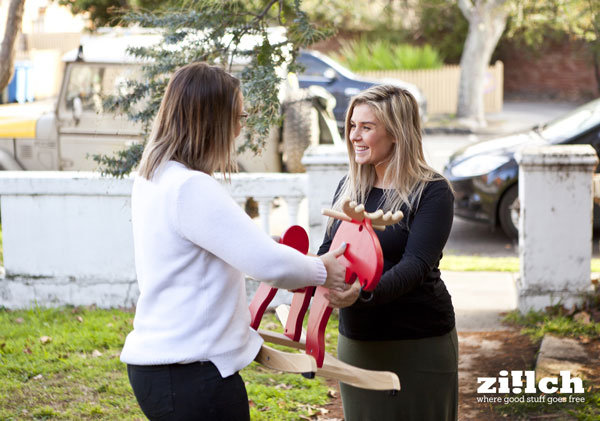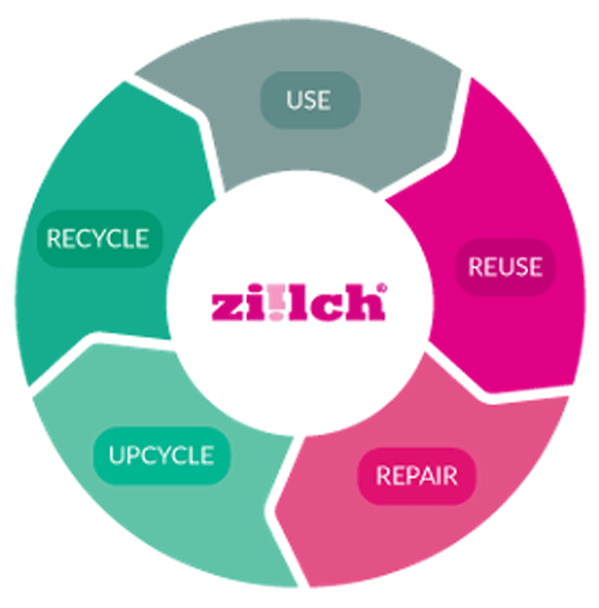About Ziilch
On this page: What is Ziilch? - How does Ziilch work? - Who is behind Ziilch?
What is Ziilch?
Embrace a feel-good and sustainable approach
to de-cluttering and re-use with Ziilch.

Ziilch (pronounced “zilch” and meaning “zero, zip, nada”) –
is a like-minded community of givers and receivers who
care about their community and environment and
value the notion that one person’s clutter is
another person’s treasure.
Providing a way for Australians to give away items they
no longer want to other people that may need them,
Ziilch’s free community-driven platform promotes
social responsibility and environmental sustainability
by keeping good stuff out of landfill.

Supporting a circular economy model, Ziilch encourages
landfill diversion by re-using, repairing, upcycling
and recycling.

Figures sourced: January 2021
How does Ziilch work?
Be a part of a “re-use” revolution!
Australia's most popular site for giving away
and finding free second-hand goods.
Become a member to request FREE stuff
or give away second hand things you don't want anymore!
It's free to list items on Ziilch, and it's free to take them.
How do I give things away in 3 easy steps?
Step One:
Snap a photo with your smart phone and write a description.
Step Two:
Pick someone to give the item to.
Step Three:
Pop it on your porch, ready for collection
What stuff can I list on Ziilch?
There’s heaps of stuff you can list on Ziilch and with our
member base quickly expanding across Australia,
you’re sure to find a new home for your
unwanted stuff fast. View categories
We do not allow a few items on the site, including animals,
so please see our “stuff you can’t list” page and
the “animals policy” page for more information.
Who is responsible for Ziilch?
Ziilch is overseen by a dedicated team of volunteers
who are committed to reducing waste by redirecting
valuable items away from landfill. The founders recognised
the need for a specific platform that could facilitate
the exchange of household and everyday items
that would otherwise end up in hard rubbish
or landfill, particularly those that could not be donated.
